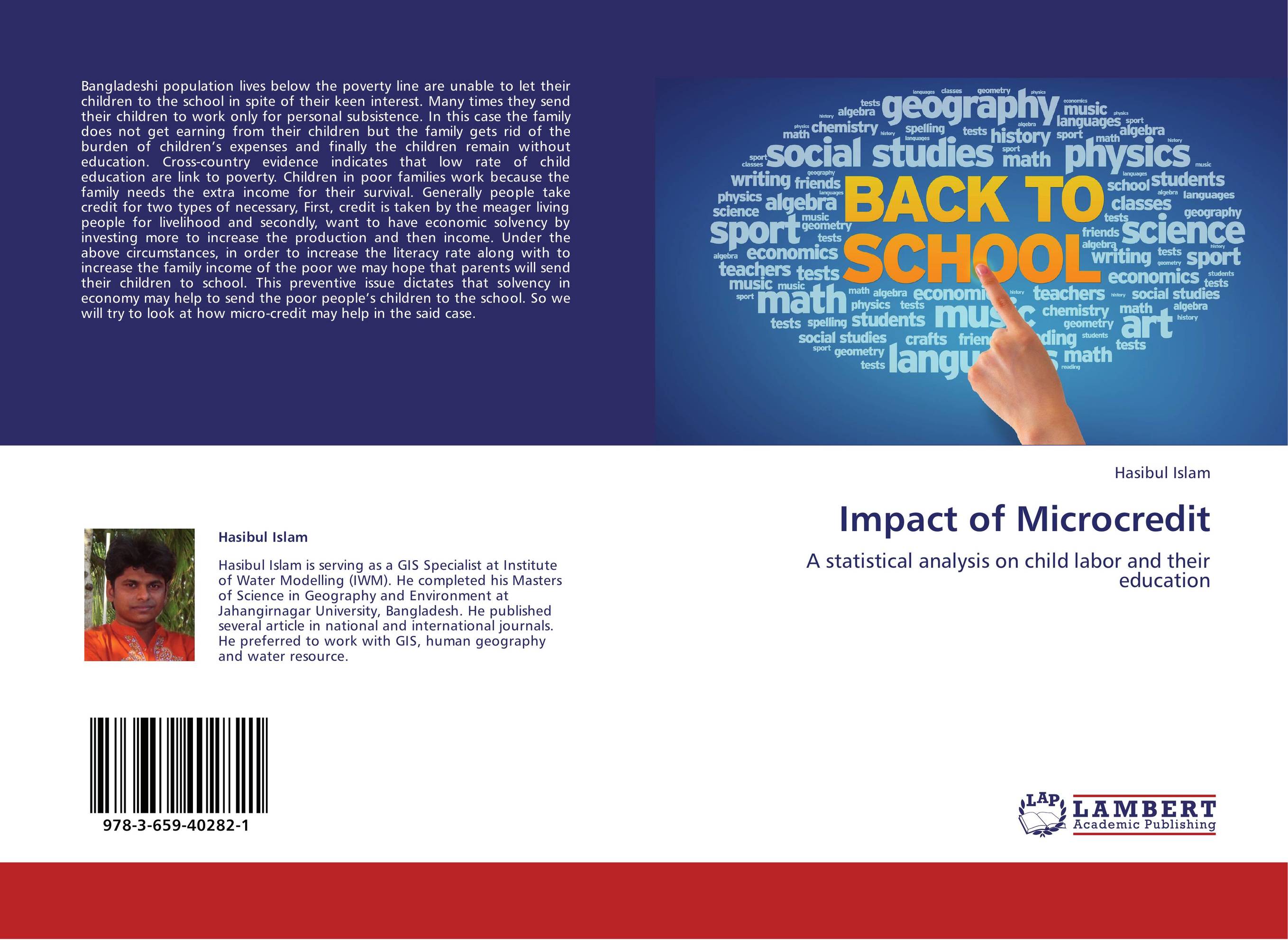| Поиск по каталогу |
|
(строгое соответствие)
|
- Профессиональная
- Научно-популярная
- Художественная
- Публицистика
- Детская
- Искусство
- Хобби, семья, дом
- Спорт
- Путеводители
- Блокноты, тетради, открытки
Impact of Microcredit. A statistical analysis on child labor and their education

В наличии
| Местонахождение: Алматы | Состояние экземпляра: новый |

Бумажная
версия
версия
Автор: Hasibul Islam
ISBN: 9783659402821
Год издания: 2013
Формат книги: 60×90/16 (145×215 мм)
Количество страниц: 88
Издательство: LAP LAMBERT Academic Publishing
Цена: 25976 тг
Положить в корзину
| Способы доставки в город Алматы * комплектация (срок до отгрузки) не более 2 рабочих дней |
| Самовывоз из города Алматы (пункты самовывоза партнёра CDEK) |
| Курьерская доставка CDEK из города Москва |
| Доставка Почтой России из города Москва |
Аннотация: Bangladeshi population lives below the poverty line are unable to let their children to the school in spite of their keen interest. Many times they send their children to work only for personal subsistence. In this case the family does not get earning from their children but the family gets rid of the burden of children’s expenses and finally the children remain without education. Cross-country evidence indicates that low rate of child education are link to poverty. Children in poor families work because the family needs the extra income for their survival. Generally people take credit for two types of necessary, First, credit is taken by the meager living people for livelihood and secondly, want to have economic solvency by investing more to increase the production and then income. Under the above circumstances, in order to increase the literacy rate along with to increase the family income of the poor we may hope that parents will send their children to school. This preventive issue dictates that solvency in economy may help to send the poor people’s children to the school. So we will try to look at how micro-credit may help in the said case.
Ключевые слова: Bangladesh, Statistical analysis, economic, Child labor, primary education, Micro-credit, working children, education, NGO’s, Grameen Bank, Dr. Muhammad Yunus



